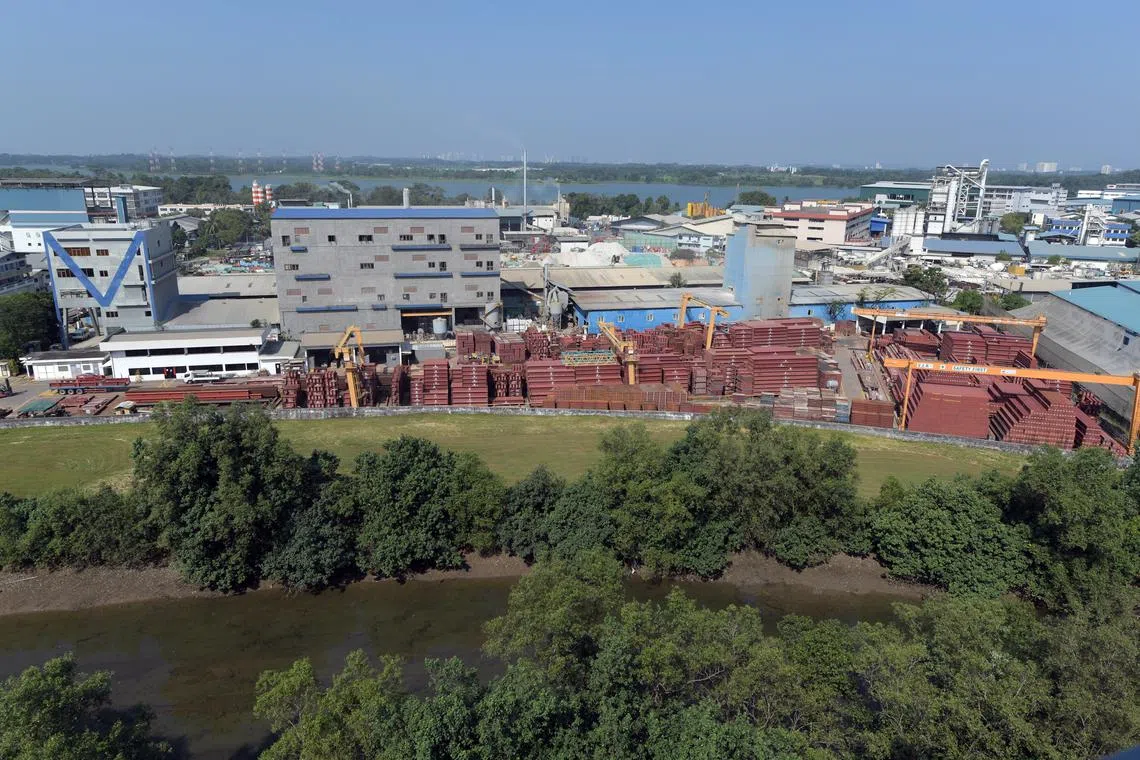Voluntary carbon market activity essential to Singapore’s Green Plan
Sign up now: Get ST's newsletters delivered to your inbox

Carbon credits, which are generated by carbon-offset projects, can be bought and traded in the compliance or voluntary market.
ST PHOTO: ALPHONSUS CHERN
Follow topic:
SINGAPORE – The voluntary carbon market has been in the doldrums for two years amid doubts among buyers over the integrity of the process, noted industry experts.
They told The Straits Times that most were deterred by a 2023 report in The Guardian, which found that more than 90 per cent of the carbon credits on registry Verra were “phantom”.
The scandal continues to play out. On Oct 2, former C-Quest Capital chief executive Kenneth Newcombe was accused by the US authorities of manipulating emissions data
Other challenges are affecting the market as well, including the absence of a globally accepted regulatory framework, and countries opting for a carbon tax instead of carbon credits.
Buyers, which include companies and institutions, want more clarity before investing in carbon credits, said Mr Alfredo Nicastro, senior vice-president and global head of carbon markets at American financial service firm StoneX.
Mr Nicastro added that volumes have plunged from almost US$2 billion in 2021, to under US$1 billion in 2023.
While investors are buying carbon credits from projects that remove carbon dioxide from the atmosphere, such as afforestation, reforestation and revegetation, Mr Nicastro said credit volumes and prices are “pretty slow compared with 2022”.
The slowdown in the voluntary carbon market is concerning, as Singapore’s Green Plan 2030 aims to make the country Asia’s carbon services and trading hub.
Lawyer Michael Lawson, partner-in-charge at King & Wood Mallesons, noted that Singapore’s carbon market depends on the international carbon credit trade, but very few credits can be produced in the Republic itself.
Carbon credits, which are generated by carbon-offset projects, can be bought and traded in the compliance or voluntary market. The compliance market is regulated by governments, while credits from the voluntary market are not legally required or regulated to be used to offset carbon emissions.
Singapore firms that are carbon tax-liable can source carbon credits only in Ghana and Papua New Guinea, but Singapore has at least another seven or eight of those bilateral agreements that it is pursuing, noted Mr Lawson.
He added: “The more agreements that it has, the more there is a potential pool of credits. This is important in terms of facilitating and supporting a workable cross-border market for carbon credits.”
The voluntary carbon market is being hindered by the lack of progress on Article 6 of the Paris Agreement, which sets rules for global trade in greenhouse gas emission reductions, and provides countries and businesses with a framework to meet climate goals.
S&P Global noted in late 2023 that some countries felt there were not enough safeguards in the agreement to “ensure a functioning and transparent market”, which in turn would likely limit the growth of carbon markets.
Despite the reservations, Mr Kelvin Cen, Bloomberg’s head of South-east Asia, believes carbon credits remain an invaluable tool to help a region or sector transition to net zero: “We’re seeing a lot of work under way to ensure integrity, participation and market acceptance.
“Increasingly, we are seeing a demand for high-quality, transparent data in this space, which shows an underlying demand for carbon markets and the role they play in the net-zero transition.”
Building trust and scaling the market
Mr Mark Glossoti, interim CEO of global carbon exchange Climate Impact X, is not fazed by what he sees as “short-term market volatility”, adding: “This is a long game, and short-term targets are less important than building robust foundations that last long term.”
He also said that the exchange has seen healthy daily pricing and trading activity, and settled close to a quarter of the global over-the-counter transaction volumes in the first half of 2024.
“The voluntary carbon market will need active two-way spot price discovery, development of industry benchmarks, and a deep and liquid derivative market for the world to manage risks associated with the energy transition,” said Mr Glossoti.
Ms Paula VanLaningham, director of carbon research at the London Stock Exchange Group, said the voluntary carbon market will need some measure of standardised trading in order for it to scale properly, but that can be hard in a market where “rules and what’s acceptable are always changing”.
“It’s very difficult to set up a standardised contract that everyone has confidence in,” she added.
“This is a commodities market that starts from scratch. Environmental commodities have an inherent lack of certainty. There is some fuzziness around the margins with carbon. That then becomes really risky in a way that people are struggling with.”
Moving money into developing countries and projects
StoneX’s Mr Nicastro believes the market will grow significantly, though with more voluntary action happening in the next five to 10 years, not immediately.
“If you look at where we are today in terms of delivering on the goals of the Paris Agreement, we are very far from it,” he said.
“Countries are going to increase maybe 10 per cent and 15 per cent of their goals, but they’re not going to be able to do everything through regulation or policy. For us to be able to deliver on the goals, we need a lot of voluntary action.
“We need a lot of capital flow from developed countries to developing and emerging economies.”
Mr Nicastro believes companies should invest in the places, technologies and projects that deliver better results in terms of reducing carbon emissions per dollar invested.
“I trust that we will all get to a reasonable midpoint and allow regulation, voluntary action and decarbonisation of operations to happen. Voluntary markets are critical to finance climate action,” he added.
Project Qatalyst, a due diligence platform and the brainchild of Standard Chartered Bank and French multinational power company Engie, uses technology to help investors identify, evaluate and monitor the different types of carbon-offset projects.
Currently, carbon teams read dozens of documents and collate the findings manually into Excel sheets and PowerPoints for decision-making, said Mr Poyan Rajamand, venture lead for Qatalyst at SC Ventures, the corporate venture capital and incubator arm of Standard Chartered Bank. Project Qatalyst seeks to simplify and augment these tasks.
“Project Qatalyst will help them access different data sources such as data from satellite imagery companies and information about similar projects from registries so that they can better evaluate if the information given to them about certain projects supports them in their due diligence, and aims to help them to simplify their internal workflow and improve communication between internal teams,” he added.
“The whole idea is to allow more financiers to be active in the market and allow more markets to flow into conservation projects.
“From what we see about the voluntary carbon market, it is still very nascent. Everyone is acknowledging the challenges, but we’re also focusing on solving these issues.”


